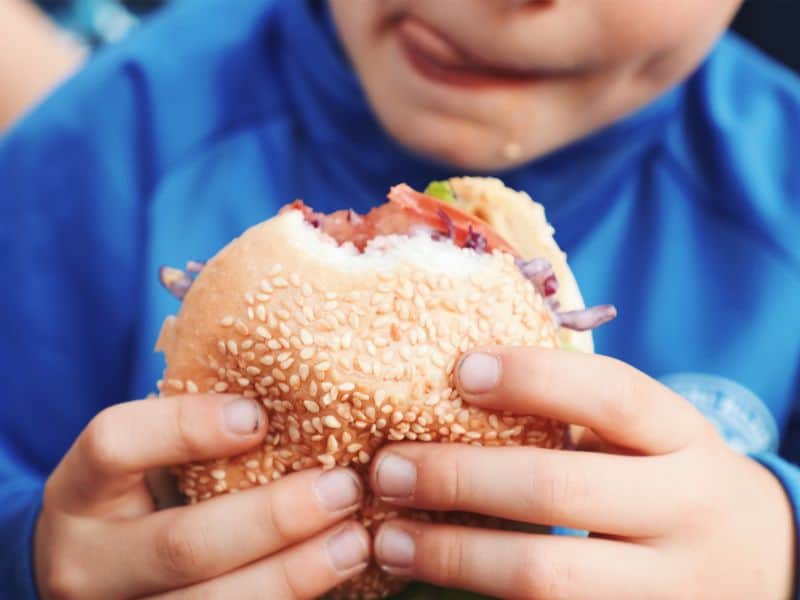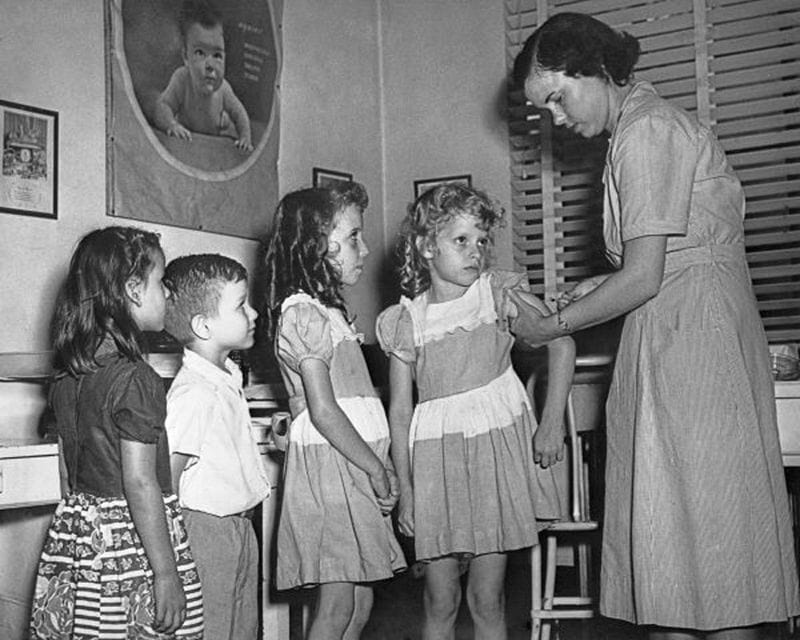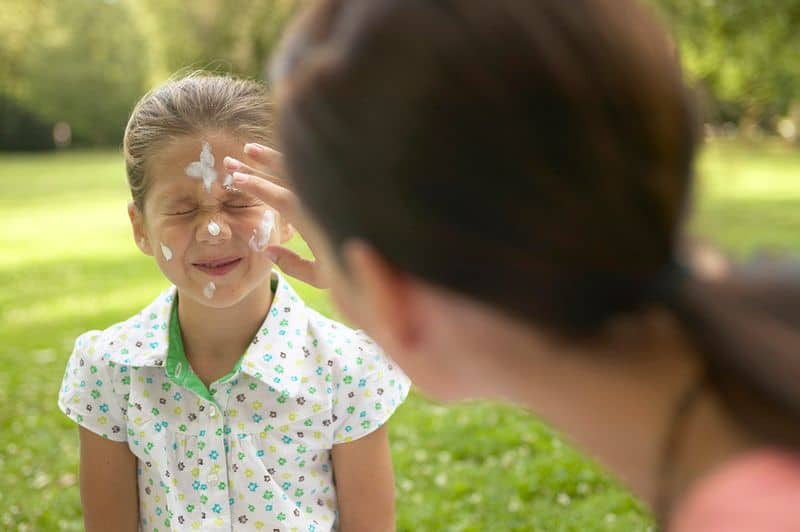Parenting has evolved dramatically over the years, and many practices that were once considered normal—or even ideal—are now seen in a very different light. Our understanding of child development, psychology, and health has advanced, and with it, so have the expectations for how we raise children.
Back in the day, parents often followed routines or traditions without question, doing what they thought was best based on the times. However, some of those everyday habits might not hold up so well today.
From outdated discipline techniques to parenting choices that now seem downright harmful, these practices were often a reflection of societal norms rather than proven methods of good parenting. While they may have worked—or seemed to work—in the past, today’s world calls for a more informed, compassionate, and mindful approach to raising children.
We’ll explore everyday things old-school parents did that you should steer clear of in today’s world. Whether you’re a new parent or just reflecting on how things have changed, these examples highlight the importance of adapting to the times for the benefit of future generations.
1. Spanking as Discipline

Spanking was a common form of discipline in the past, often believed to teach children right from wrong. However, modern research highlights its negative effects. Physically punishing children can lead to increased aggression, antisocial behavior, and mental health issues.
Parents today are encouraged to explore alternative discipline methods, such as positive reinforcement and time-outs. These methods promote healthy communication and understanding.
While it might seem challenging initially, shifting away from physical punishment fosters a more respectful and trusting relationship with your child, paving the way for a healthier upbringing.
2. Overfeeding with Junk Food

In the past, parents often didn’t think twice about serving their children sugary cereals, sodas, and processed snacks as part of their regular diet. However, we now know the long-term health impacts of consuming too much junk food.
These items are linked to obesity, diabetes, and other chronic illnesses. Modern parents should prioritize balanced meals, incorporating fresh fruits, vegetables, and whole grains.
Educating children about nutritious eating habits can lead to healthier lifestyle choices as they grow. Limit treats to occasional indulgences and focus on meals that nurture and energize.
3. Allowing Inadequate Screen Time

Back then, parents often let their kids watch TV for hours without much supervision or regulation. Today, we understand the potential dangers of excessive screen time, including negative impacts on sleep, cognition, and physical health.
Modern parenting suggests setting clear boundaries around screen usage. Encourage outdoor play, reading, and social interactions instead.
Use technology as a tool for education rather than as a babysitter. This ensures that children learn to balance technology with real-world activities, crucial for their development and well-being.
4. Ignoring Mental Health

In earlier generations, mental health issues were often overlooked or dismissed as mood swings or phases. Today, we know the importance of recognizing and addressing these concerns early on.
Encourage open conversations about feelings and emotions. Be attentive to behavioral changes, and don’t hesitate to seek professional help if necessary.
Prioritizing mental health in parenting can greatly impact a child’s overall development, self-esteem, and quality of life. Normalize discussing emotions and seeking therapy, making mental wellness a family priority.
5. Strict Gender Roles

Traditionally, parents often imposed strict gender roles, steering boys and girls towards specific toys, hobbies, and even careers. However, this can limit a child’s potential and self-expression.
Parents today are encouraged to offer a more gender-neutral environment. Allow children to explore interests freely, irrespective of gender stereotypes.
This approach nurtures creativity, confidence, and individuality. It also prepares them for a world where equality and diversity are increasingly valued. Challenge stereotypes and promote an inclusive worldview from the start.
6. Lacking Car Safety Measures

Once upon a time, car safety for children was not a major concern; seatbelts and car seats were often ignored. Now, we know their critical importance.
Always use age-appropriate car seats and ensure everyone buckles up. Car seats save lives and minimize injuries during accidents.
This practice instills a habit of safety and responsibility in children. By consistently emphasizing these safety measures, parents can protect their kids and teach valuable lessons about being cautious and aware.
7. Minimal Supervision Outdoors

Decades ago, children were often left to roam neighborhoods unsupervised, which sometimes led to unsafe situations. Modern parents understand the importance of supervision to ensure safety.
While fostering independence is crucial, always be aware of your child’s whereabouts. Establish clear boundaries and maintain open communication lines.
Incorporating supervised playdates and structured activities can provide a balance of freedom and security. Parents’ engagement in outdoor activities can also enhance family bonds and build trust.
8. Neglecting Dental Hygiene

In the past, dental care wasn’t as emphasized, leading to common issues like cavities and gum disease. Today, we understand the importance of maintaining oral hygiene from an early age.
Teach children the value of brushing twice daily, flossing, and regular dental check-ups. These habits prevent dental problems and foster a lifetime of healthy smiles.
Use fun and interactive methods, like songs or games, to make brushing enjoyable. Prioritizing dental health not only impacts physical health but also boosts confidence.
9. Skipping Vaccinations

Earlier, some parents skipped vaccinations due to misinformation or lack of resources. However, vaccinations are crucial in preventing severe illnesses and protecting public health.
Stay informed about the vaccination schedule and ensure your child receives all recommended shots. Consult healthcare professionals about any concerns.
Understanding the significance of vaccines helps you make informed decisions. Vaccinations safeguard your child and contribute to community immunity, offering protection to vulnerable populations.
10. Using Lead-Based Products

In the past, lead-based paints and products were common, posing health risks such as lead poisoning. Today, we understand the dangers associated with lead exposure.
Ensure that your child’s toys, furniture, and home environment are free from lead-based materials. Opt for certified, safe alternatives.
Regularly inspect and maintain your home to prevent lead exposure. This proactive approach protects your child’s health and well-being, ensuring a safe and nurturing environment.
11. Underestimating Sun Protection

Decades ago, sun protection wasn’t prioritized, often leading to sunburns and increased skin cancer risks. Today, we recognize the importance of safeguarding our skin from harmful UV rays.
Apply sunscreen generously and ensure children wear protective clothing and hats when outdoors. Teach them the importance of seeking shade during peak sun hours.
Building these habits early instills a lifelong commitment to skin health. Encourage kids to embrace sun safety to protect their skin and overall health.
12. Overlooking Allergies

In the past, food allergies and intolerances were often misunderstood or ignored. Today, heightened awareness and research highlight their seriousness.
Be vigilant about potential allergies in your child’s diet. Consult healthcare providers for testing if you suspect sensitivities.
Educate children about recognizing and managing allergies. This knowledge empowers them to make safe choices and advocate for their health in social settings.
13. Allowing Smoking Indoors

Smoking indoors was once a common practice, exposing children to harmful secondhand smoke. We now understand its damaging effects on respiratory health.
Parents should ensure a smoke-free environment at home and in vehicles. Encourage family members to smoke outside, away from children.
This practice promotes a healthier living space, reducing the risk of respiratory issues and other smoke-related health problems. It’s a step towards a cleaner, healthier environment for the whole family.
14. Emphasizing Academic Success Over Creativity

Historically, academic success was often prioritized over creative pursuits, potentially stifling a child’s imaginative growth.
Encourage a healthy balance between academics and creative activities. Support interests in art, music, and drama alongside traditional subjects.
This balanced approach nurtures a well-rounded individual with diverse skills and interests. Creativity fosters critical thinking and problem-solving abilities, essential for future success.
15. Disregarding Environmental Impact

Environmental awareness was minimal decades ago, leading to practices that harmed the planet. Today, we understand the impact of our actions on the environment.
Instill eco-friendly habits in your children, such as recycling, conserving water, and reducing waste. Teach them about the importance of sustainability.
These practices encourage responsible consumption and stewardship of the planet. By educating the next generation, we pave the way for a more sustainable future.
16. Relying on Home Remedies

Decades ago, home remedies were often the go-to solution for illnesses, due to limited medical knowledge or access. While some are beneficial, not all are safe or effective.
Seek professional medical advice for health concerns, balancing traditional knowledge with modern medicine. Stay informed about which remedies are safe.
This approach ensures your child’s health and safety while respecting cultural traditions. A balanced perspective on health care enhances well-being and prevents potential complications.
17. Neglecting to Discuss Consent

Consent and personal boundaries weren’t commonly discussed in the past, leaving children ill-equipped to navigate these crucial aspects.
Today’s parents should foster an environment where discussing consent and respecting personal space are normalized. Educate children on understanding and asserting their boundaries.
This dialogue empowers children to advocate for themselves and respect others, building a foundation for healthy relationships. It’s essential for developing social and emotional intelligence and fostering mutual respect.

